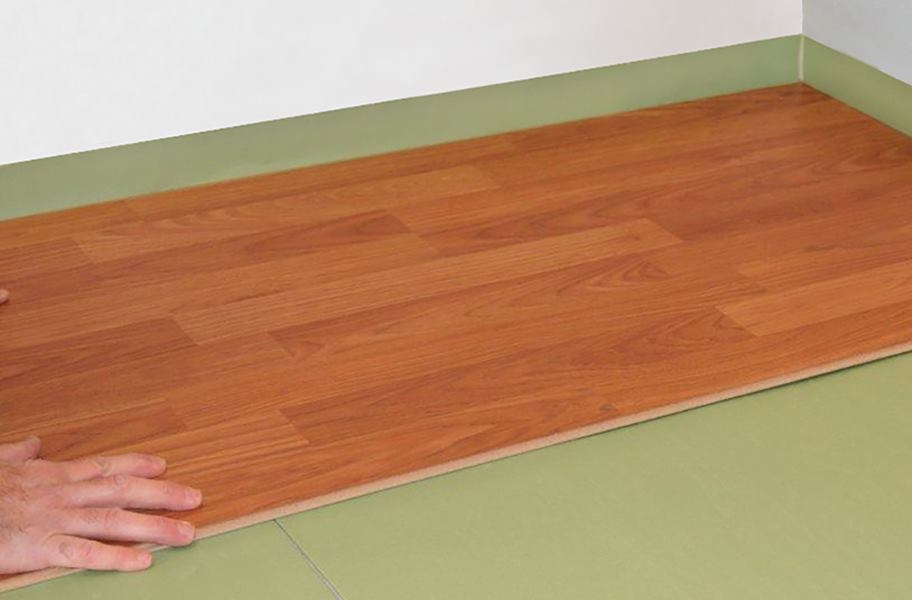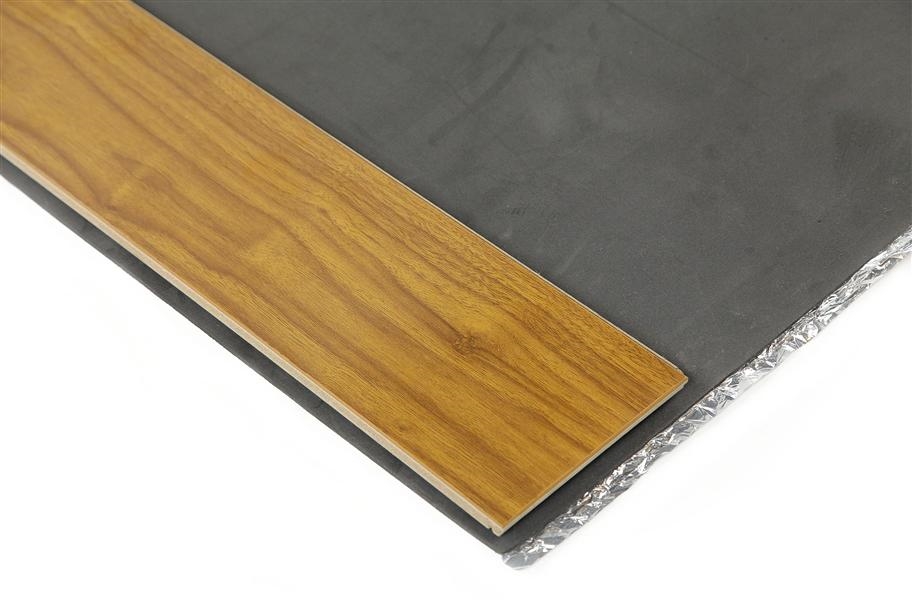You’ve decided on vinyl plank flooring—a smart choice! It’s durable, stylish, and easy to maintain. But as you dive deeper into the installation process, a question arises: Do I need a moisture barrier? This seemingly simple question can lead to confusion, especially when you’re bombarded with conflicting advice from different sources. Fear not, this comprehensive guide is here to demystify the topic and help you make the right decision for your specific situation.

Image: www.flooringinc.com
A moisture barrier acts as a shield between your subfloor and your vinyl plank flooring, preventing moisture from creeping up and damaging your investment. While not always a necessity, understanding the nuances of moisture barriers is crucial for ensuring the longevity and beauty of your flooring. This guide will explore the pros and cons of using a moisture barrier, delve into different types of moisture barriers, and provide practical tips to help you determine if you truly need a moisture barrier for your vinyl plank flooring.
Understanding the Importance of Moisture Barriers
Imagine this: You’ve painstakingly installed your new vinyl plank flooring, only to discover unsightly warping, buckling, or even mold growth beneath the surface. This nightmare scenario can be a consequence of moisture seeping through your subfloor and compromising the structural integrity of your flooring. This is where moisture barriers come into play.
A moisture barrier serves as a protective layer, effectively preventing moisture from penetrating the subfloor and reaching the vinyl planks. They act as a safeguard against:
- Moisture from Below: Moisture can travel up from a variety of sources, including concrete slabs, crawl spaces, or even spills and leaks from above.
- Humidity: High humidity levels in certain climates can create an environment conducive to moisture buildup.
- Condensation: Temperature fluctuations can lead to condensation, especially in areas with poor ventilation.
In essence, a moisture barrier is your vinyl plank flooring’s first line of defense against moisture-related damage. While not universally required, it’s a wise investment in many situations.
Do You REALLY Need a Moisture Barrier?
The need for a moisture barrier primarily depends on two factors: the material of your subfloor and the environment of your home.
Subfloor Materials:
- Concrete Subfloors: Concrete is inherently porous and susceptible to moisture. A moisture barrier is highly recommended to prevent moisture from permeating upwards and damaging your flooring.
- Wood Subfloors: Wood subfloors, especially those exposed to moisture, can also benefit from a moisture barrier. However, they tend to be less prone to moisture damage than concrete subfloors, especially if they’re properly sealed and treated.

Image: dragon-upd.com
Environmental Considerations:
- High-Humidity Climates: Homes in areas with high humidity are more prone to moisture issues. A moisture barrier is essential in these climates.
- Below-Grade Installations: If your vinyl plank flooring is installed in a basement or crawlspace, moisture penetration is a greater concern. A moisture barrier is almost always necessary in these situations.
- Potential for Leaks: Consider the potential for leaks or spills from plumbing, appliances, or even roof damage. A moisture barrier can prevent these leaks from causing irreparable damage to your flooring.
Types of Moisture Barriers:
There are several different types of moisture barriers available, each with its own advantages and drawbacks.
- Polyethylene Sheeting: A common and cost-effective option, polyethylene sheeting is a durable, water-resistant material. It’s easy to install and provides reliable protection against moisture.
- Vapor Retarders: These specialized materials are highly effective at blocking moisture vapor. They are often used in conjunction with other moisture barriers for added protection.
- Membrane Systems: Advanced membrane systems offer superior moisture protection and can even help to manage moisture buildup. These systems are typically more expensive but deliver exceptional performance.
Choosing the Right Moisture Barrier for Your Needs:
Selecting the appropriate moisture barrier involves a careful consideration of factors such as:
- Budget: Moisture barriers range in price, so consider your budget constraints.
- Subfloor Type: The type of material your subfloor is made of will influence the choice of moisture barrier.
- Environmental Factors: The climate and potential for moisture buildup play a significant role in determining the best moisture barrier.
- Installation Difficulty: Consider the level of expertise required for installing the moisture barrier. Some options are easier to install than others.
Installation Tips:
Once you’ve chosen your moisture barrier, correct installation is paramount to ensure its effectiveness.
- Proper Preparation: The subfloor should be clean, dry, and level before applying the moisture barrier.
- Overlap and Seal: Overlap the moisture barrier sheets by at least 6 inches and seal the seams with waterproof tape.
- Ventilation: Ensure adequate ventilation in areas with moisture barriers to prevent mold growth.
Additional Tips:
Here are some extra tips to safeguard your vinyl plank flooring:
- Underlayment: Consider using an underlayment with a built-in moisture barrier, adding another layer of protection.
- Properly Seal Seams: Ensure that all seams between vinyl planks are sealed to prevent moisture from entering.
- Prevent Excess Moisture: Keep your home well-ventilated and address any leaks or spills promptly.
Do I Need A Moisture Barrier For Vinyl Plank Flooring
Conclusion:
The decision of whether or not to use a moisture barrier for your vinyl plank flooring ultimately depends on your specific situation and the level of moisture protection desired. We hope this guide has shed light on the importance of moisture barriers, the various types available, and the considerations involved in choosing the right one. By understanding the factors involved and taking proactive steps to protect your flooring, you can enjoy the beauty and longevity of your vinyl plank flooring for years to come.






